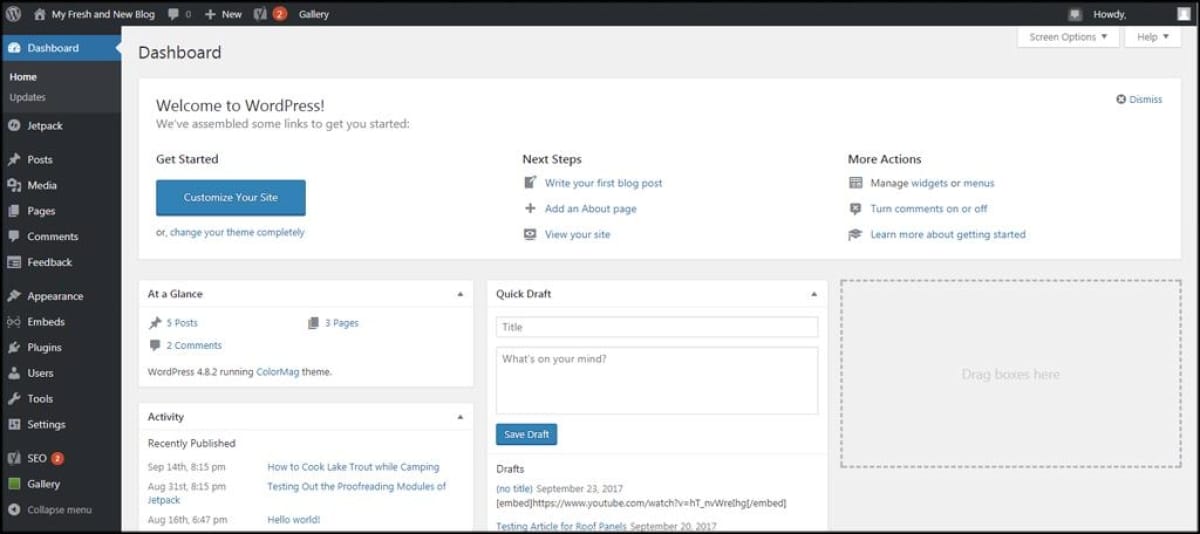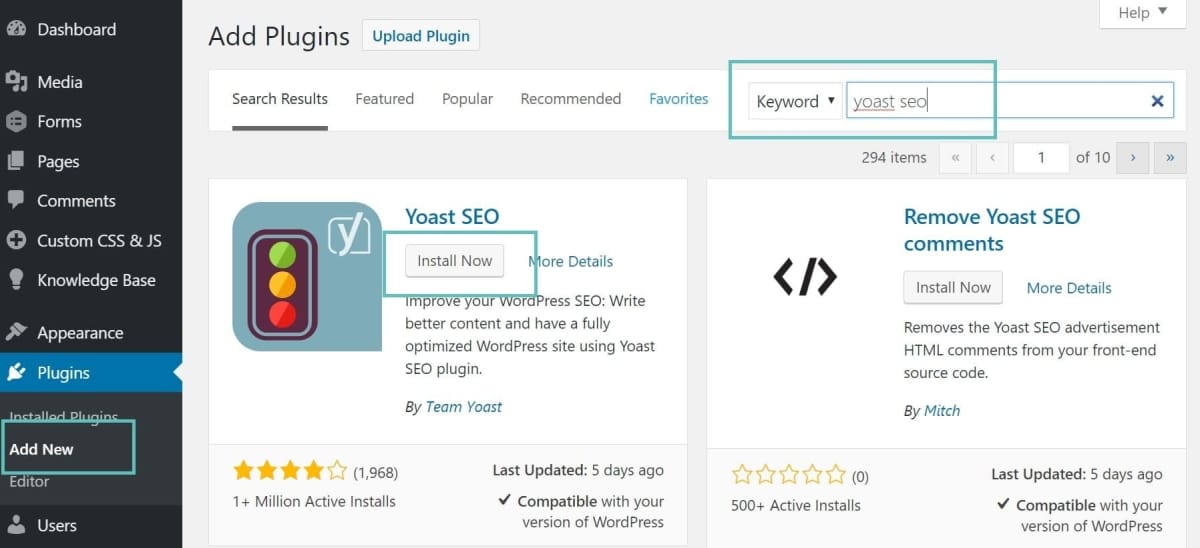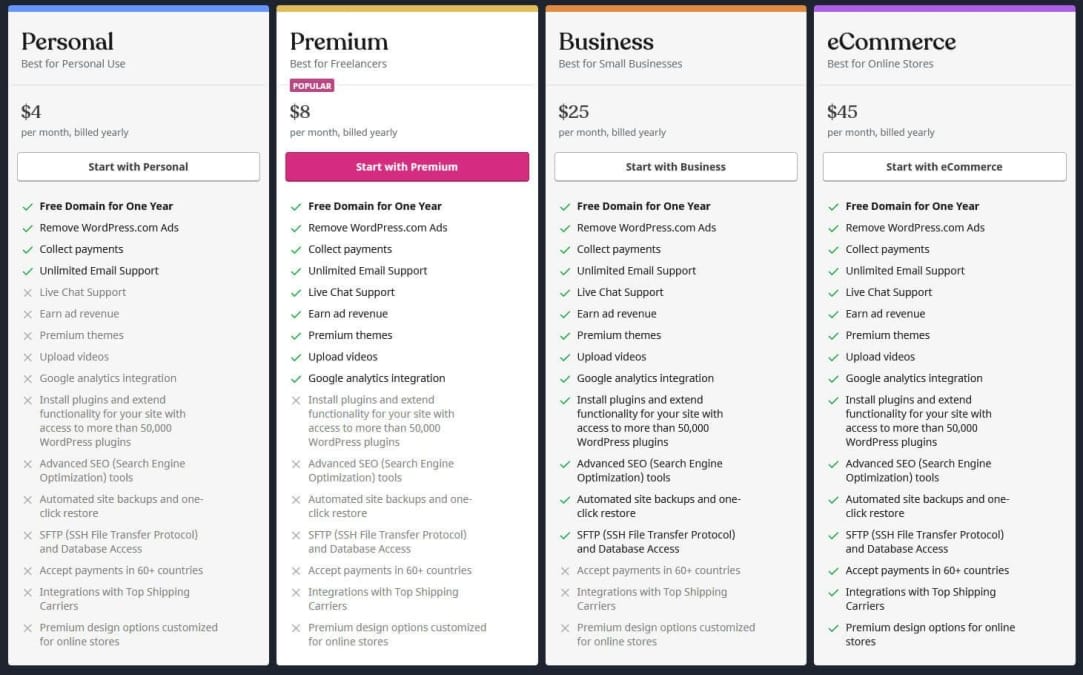If you’re diving into the world of websites, you’ve probably heard about WordPress and all the amazing things it can do. But, if you’re also wondering about email hosting and how it fits into the whole picture, you’re definitely not alone. A lot of folks are curious about whether you can snag email hosting right alongside your WordPress setup—and if it’s even worth it. In this article,we’re breaking down the basics of email hosting,how it pairs with wordpress,and what your options are. So, if you’re ready to make sense of it all, let’s get into the scoop on email hosting with WordPress!
Table of Contents
- Understanding Email Hosting and WordPress Basics
- Why You Can’t Get Email Hosting Directly from WordPress
- Exploring the Best Third-Party Email hosting Options
- Setting Up Your Email with WordPress: A Step-by-step Guide
- Troubleshooting Common Email Hosting Issues with WordPress
- Q&A
- In Retrospect

Understanding Email Hosting and WordPress Basics
Email hosting might sound like a techy term, but it’s really just a fancy way of saying you’ve got a dedicated service for managing your email accounts. Rather of using your basic provider like Gmail or Yahoo, email hosting allows you to have a professional address that matches your website domain. So, if your website is example.com, you could have emails like info@example.com. This adds a layer of professionalism and makes you look more credible in your communication.
Now, when you take into account WordPress, things get even easier. Many web hosting companies that offer WordPress services also provide email hosting. This means you can manage your site and your emails all in one place. Hear are a few perks of integrating email hosting with your WordPress setup:
- Streamlined Management: Handle your website and emails under one roof.
- Custom Domain Emails: Keep things professional with personalized email addresses.
- Improved Security: Protect your brand with better email security features.
If you’re just starting out and trying to figure out what you need, you might come across some different plans. Below is a simple comparison to help you out:
| Feature | Basic Plan | Professional Plan | Business Plan |
|---|---|---|---|
| email Accounts | 1 | 5 | Unlimited |
| Storage | 5GB | 20GB | 50GB |
| Custom Domain | ✔️ | ✔️ | ✔️ |
| Support | Email Support | Phone & Email | 24/7 Priority Support |
Choosing the right plan really depends on what you’re looking for. If your needs are simple,you might get by with a basic plan,but as your business grows,you’ll likely want something more robust.so,when you think about email hosting with WordPress,keep in mind how you’d like to communicate with your clients and partners,and choose a setup that matches that vibe. After all, your email is often the first impression people have of your brand!

Why You can’t get Email Hosting directly from wordpress
So, here’s the deal: when it comes to WordPress, it ain’t all about hosting your email right outta the box. A big reason you can’t just grab email hosting through WordPress is that their bread and butter is website creation. They focus on giving you the tools to build and manage a cool site, not necessarily handling email like a pro. This means they don’t really offer email services directly, so you won’t find an easy button for that.
If you’re looking for email hosting, the good news is there are plenty of other providers who specialize in that stuff. They know the ins and outs, and they’ve got the features you want. Plus, using a dedicated email host often means better security and more storage. It’s like having a team of pros handling your inbox rather than relying on your website builder to do double duty.
Here’s a quick rundown of some popular email hosting services you might want to check out:
| Provider | Main Features | Starting Price |
|---|---|---|
| Google Workspace | Lots of storage, collaboration tools | $6/month |
| Microsoft 365 | Office apps, cloud storage | $5/month |
| Zoho mail | Ad-free, custom domains | Free for basic |
Just remember, while you can’t set up email directly through WordPress, it’s not a lost cause. Using a third-party email host means you get a more reliable service tailored for just that. Plus, it keeps your website and email systems running smoothly without stepping on each other’s toes. So, don’t sweat it—just pair your website with a solid email host, and you’ll be all set!

Exploring the Best Third-Party Email Hosting Options
When it comes to email hosting,you’ve got plenty of solid options out there besides what WordPress itself offers. If you want a more reliable and feature-rich experience, partnering up with a third-party email host can be a game changer. Some of the big players not only provide excellent email services but also integrate smoothly with your WordPress site. Here are a few worth checking out:
- Gmail (Google Workspace): A popular choice that many folks are already familiar with. It’s got all the perks of Gmail plus additional storage and admin controls. Plus, that Google ecosystem integration is hard to beat!
- Microsoft 365: If you’re more into the Windows world, this one is right up your alley. it combines Outlook with Microsoft’s other productivity tools—great if you’re looking for a full office suite.
- Zoho Mail: An affordable option that doesn’t skimp on features. It’s ad-free and provides a clean user interface—ideal if you prefer a minimalist vibe.
- ProtonMail: If security and privacy are at the top of your list, this might be your jam. It’s got end-to-end encryption, so you know your info is safe.
Most of these services come with easy setup guides and plugins for WordPress, making integration a breeze. As a notable example, you can use plugins like WP Mail SMTP to smooth out the connection between your WordPress site and whichever email host you choose. It helps ensure that your emails land where they’re supposed to instead of getting lost in the spam folder. Plus, these services let you use your own domain, giving you a professional edge.
Here’s a quick comparison for you to chew on:
| Email Host | Starting Price | Storage | Best For |
|---|---|---|---|
| Gmail | $6/user/month | 30 GB | Collaborative Teams |
| Microsoft 365 | $5/user/month | 1 TB | Office Suite Users |
| Zoho Mail | Free (with ads) | 5 GB | Budget-Conscious Users |
| ProtonMail | Free (limited features) | 500 MB | Privacy Focused |
Choosing the right email hosting service can really enhance your communication game, making it easier to connect with your audience, clients, or team. Take a bit of time to weigh what’s most crucial to you, and you’ll find the perfect match for your needs. Remember, your email host is just as vital as your website, so don’t overlook this piece of the puzzle!

Setting Up Your Email with WordPress: A step-by-Step guide
Setting up your email with WordPress doesn’t have to be a headache.First things first, you’ll want to choose an email hosting service that suits your needs. Plenty of companies offer this as part of their packages. Here’s a short list of popular options:
- Google Workspace – Get that familiar gmail vibe with extra features.
- Microsoft 365 – A solid choice if you’re a fan of Outlook.
- Zoho Mail – A budget-friendly option with good functionalities.
Once you’ve picked your hosting provider, the next step is connecting it to your WordPress site. Most services will give you clear directions, but it usually involves accessing your domain settings. You’ll want to log into your domain registrar (like GoDaddy or Namecheap) and update your DNS records. Here’s what you generally need to do:
| DNS Record Type | Value |
|---|---|
| MX Records | Make sure these point to your email host. |
| SPF Record | Verify that your sending server is authorized. |
| DKIM Record | Helps prevent your emails from looking like spam. |
once everything’s set up on both ends, it’s time to test. send yourself an email and see if it comes through correctly.Make sure you check both your inbox and spam folder—gotta cover all the bases! If something’s not working, don’t sweat it. Double-check your DNS settings or reach out to your hosting provider for help.With a little patience, you’ll be up and running in no time!

Troubleshooting Common Email Hosting Issues with WordPress
If you’re running into issues with your email hosting on WordPress, you’re not alone. many folks experience hiccups along the way, but most are pretty easy to fix. Here are some of the common problems you might face and how to tackle them:
- Email Not Sending: This can frequently enough happen due to incorrect SMTP settings. Double-check your server address, username, and password. Also, make sure your host allows third-party mail services.
- Emails Going to Spam: If your emails keep getting flagged, it might be a DNS issue. Ensure your SPF and DKIM records are set up correctly. These help verify your emails and can improve delivery rates.
- Login Issues: If you can’t log into your email account, try resetting your password or checking for any service outages. Sometiems, the issue is on your provider’s end, and there’s not much you can do except wait it out.
- Slow Email Performance: If there’s a lag in sending or receiving emails, it might be your internet connection. A slow connection can affect how fast your emails get through.
Another thing to consider is your plugins. some WordPress plugins can interfere with email sending. If you’ve just added a new one and started seeing issues, try deactivating it temporarily to see if that resolves the problem. Remember to clear your cache after making any changes, as that can also play a role in how things are running.
If all else fails, reach out to your hosting provider’s support team. They should have the tools and knowledge to diagnose more complicated problems. Here’s a quick table showing what to check when troubleshooting:
| Issue | Check This | Notes |
|---|---|---|
| Email Not Sending | SMTP Settings | Username & Password |
| Emails Going to Spam | SPF/DKIM Records | Verify Email Authentication |
| Login Issues | Password Reset | Check Service Status |
| Slow Performance | internet Connection | Try Resetting Modem |
With these tips and tricks up your sleeve, you’ll be in a good spot to sort through any email hosting issues that crop up. Sometimes, it just takes a bit of patience and problem-solving to get everything back on track!
Q&A
Q&A: Can you Get Email Hosting with WordPress? Here’s the Scoop!
Q: Can I host my email through wordpress?
A: Not directly! WordPress itself doesn’t offer email hosting. It’s primarily a platform for building websites. However, you can connect your site to an email hosting service.
Q: So, what’s the workaround?
A: Great question! You can use third-party email hosting services like G Suite (now called Google Workspace), Zoho Mail, or even Microsoft 365.These providers let you create and manage your email accounts with a custom domain that matches your website.
Q: What’s a custom domain email, and why should I care?
A: A custom domain email looks professional. Instead of using a generic email like yourname@gmail.com, you could have yourname@yourwebsite.com.It boosts your credibility and makes you look more legit to clients or customers.
Q: Do I need any technical skills to set this up?
A: not really! Most email hosting services have pretty user-friendly interfaces. Plus,they offer step-by-step guides to help you connect everything. If you can set up a WordPress site,you can probably figure out email hosting too.
Q: will I loose my email if I switch hosting providers?
A: It depends. If you’re moving from one email hosting provider to another, as long as you follow the right steps, you shouldn’t lose any emails. Just make sure to back everything up before making any changes.
Q: Is there a cost involved in this whole email hosting thing?
A: Yep, there usually is! Most email hosting services come with a monthly fee. Some offer free tiers, but they might come with limitations. It’s worth it to check what fits your budget and needs.Q: Are there any particular benefits of using email hosting with WordPress?
A: Totally! By using email hosting, you get better security, more storage, and tools for collaboration, like calendars and file sharing. It integrates well with WordPress, turning your site into a more professional hub for your business.
Q: Can I use my personal email for my WordPress site instead?
A: Sure,you can use a personal email,but it’s not recommended for business. It lacks that professional touch, plus you miss out on the extra features that come with dedicated email hosting.
Q: Any final tips for someone looking to set this up?
A: Just do your homework! Look at reviews for different email hosting providers,compare features,and see what works best for your needs. And don’t hesitate to ask for help or reach out to customer support if you get stuck. You got this!
In Retrospect
And there you have it! Whether you’re just starting out with your WordPress site or looking to add some professional polish to your online presence, getting email hosting isn’t just possible—it’s pretty straightforward, too. By connecting your domain with a reliable email hosting provider, you can create a seamless branded experience for your visitors and customers.
So,whether you’re sending out newsletters,handling customer inquiries,or just keeping in touch with friends,having that dedicated email can really elevate your game. Stick with one of the options we discussed, and you’ll be up and running in no time.
If you’ve got questions or if there’s something you’d like to share about your own email hosting adventure, drop a comment below. Thanks for reading, and happy emailing!






